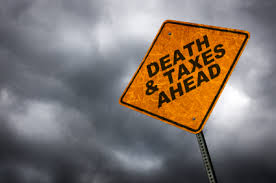Inheriting Grandma’s House Comes With Tax Bill Under Obama Plan
< < Go Back
The best-laid estate plans just got muddled.
President Barack Obama is proposing a fundamental change in tax policy that would limit what many Americans can leave to their heirs. The change would affect billionaires — as well as people who aren’t wealthy enough to pay estate taxes, if their assets have gained sharply enough in value.
A family home or a stock portfolio that quadrupled in value to $1 million over the years and goes to a child could be subject to taxes on that gain, whether or not it’s sold.
Though it’s likely to go nowhere in the Republican-led Congress, the plan lays down a marker for future Democratic tax policy. That prospect is prompting people to seek advice from estate planners and lawyers as they consider the proposed new tax at death that could expose a family home, business or securities to more than 60 percent in combined federal and state levies.
“We have a lot of families that own a specific stock, and they’ve owned that forever, and they do not want to get rid of it,” said Katherine Dean, a managing director of wealth planning at Wells Fargo Private Bank in San Francisco. “This will have a huge impact on them. Huge.”
Obama’s proposal, which will be detailed in his budget plan on Feb. 2, would impose a capital gains tax at death on the growth in the value of assets since they were purchased, except for those donated to charity. The plan also raises the top capital gains rate to 28 percent from 23.8 percent.
There would be a $200,000 exemption plus a $500,000 exemption for homes. For the $1 million home initially purchased by a married couple for $250,000, that would mean $500,000 of the gain would be exempt and a federal tax of up to $70,000 would be owed on the remaining $250,000 in appreciation.
It’s one of the plans Obama is pushing in his final two years in office that resonate with those concerned about income inequality and policies that promote inherited wealth.
Currently, upon one’s death, the estate is assessed the federal estate tax with a top rate of 40 percent on property. Yet it applies only to the handful of Americans with more than $5.43 million in assets and for married couples with more than $10.86 million.
If and when heirs sell, they owe capital gains taxes only on the difference between the sale price and the value when they inherited the asset.
In some cases, all appreciation during one’s lifetime can go untouched by the capital gains tax. That gives people an incentive to hold onto assets for tax reasons, especially if they have a low-cost basis, or the value when purchased.
The tax break will cost the government an estimated $33.2 billion in revenue this year, according to the congressional Joint Committee on Taxation.
Obama’s plan to curb the break would end what the White House has labeled — inaccurately — the “trust fund loophole” and what others have called the “angel of death loophole.” The rule has nothing to do with trust funds.
“He’s really creating a whole other set of taxes that will hit people who die with an estate,” said David Scott Sloan, a partner at Holland & Knight LLP in Boston who specializes in estate planning.
Because state income taxes — including California’s 13.3 percent top rate — typically apply to capital gains, the combined rates for some taxpayers may exceed 60 percent.
More From Financial Advisor:




